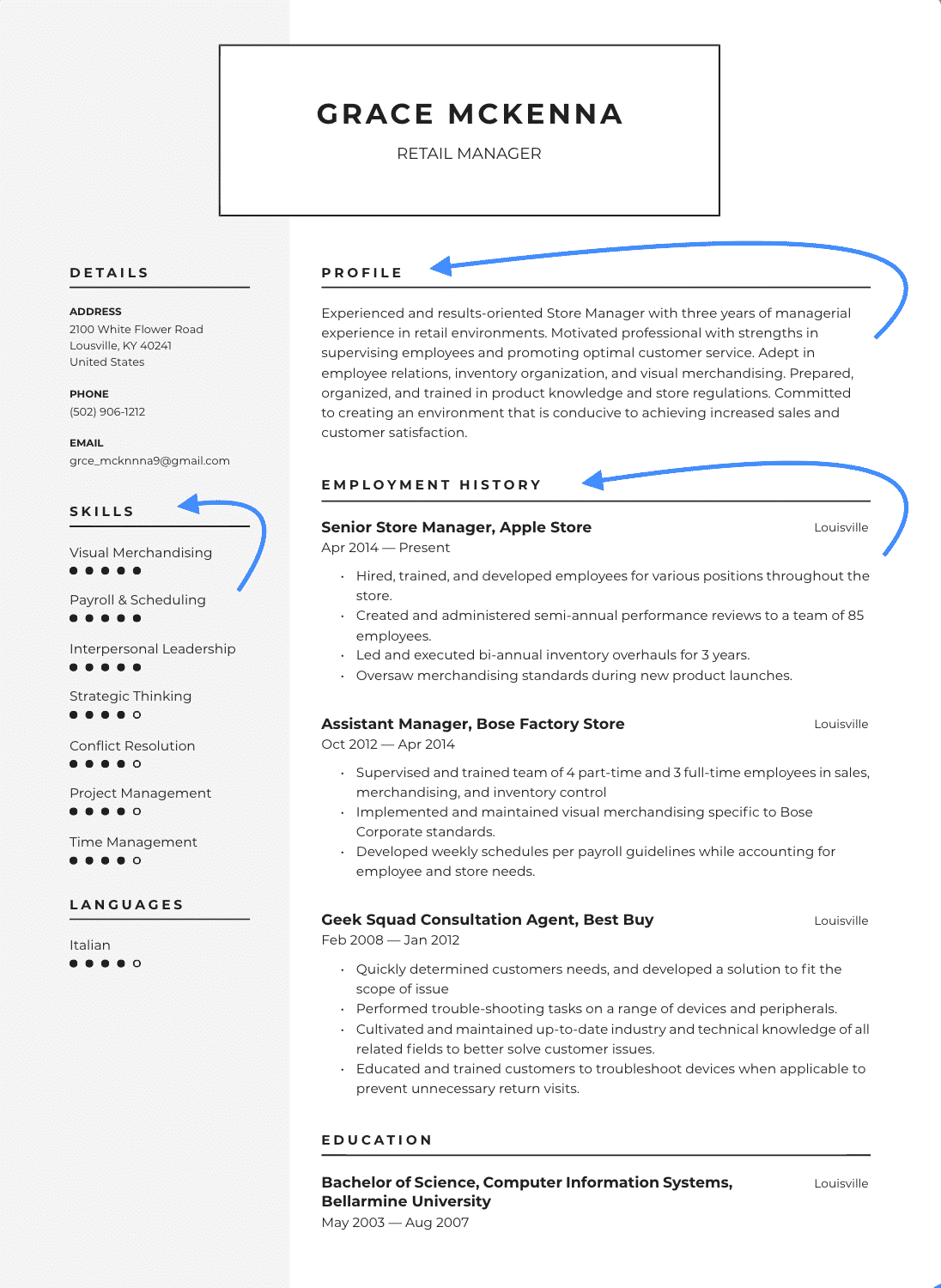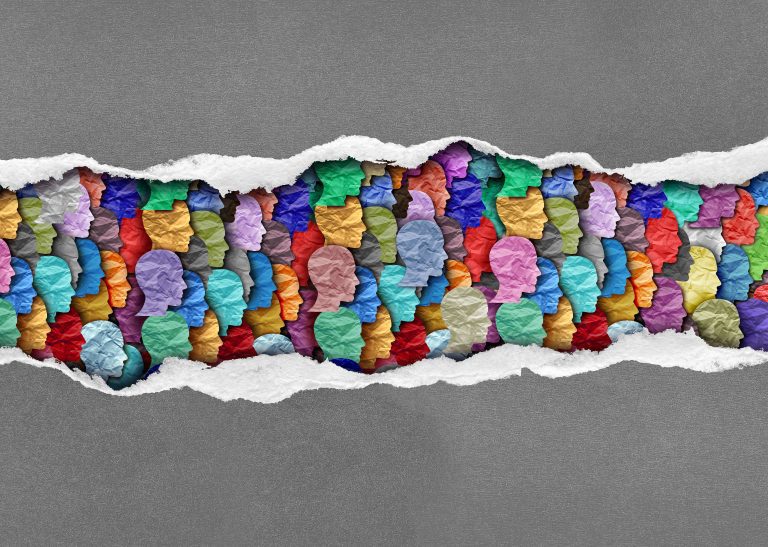Soft skills are some of the most important qualities that can set you apart when it comes time to land your next position. Including these intangible abilities on your resume helps show that you understand the company culture and could make a great fit from day one.
But what exactly are soft skills and how do you incorporate them in your resume? In this blog, we’ll cover everything you need to know including:
- The difference between hard and soft skills
- The best places to include soft skills for resume
- The most important soft skills employers are seeking
- List of soft skills examples for resume
STATISTICAL INSIGHT:
Many recent studies have demonstrated the importance of soft skills in today’s job market. According to LinkedIn’s 2019 Global Talent Trends report, 92 percent of hiring managers agree that strong soft skills are increasingly important. A study reported by SHRM, an organization for HR professionals, found that almost half of executives thought a lack of soft skills was the biggest proficiency gap in the U.S. workforce.
What are soft skills?
Soft skills are personal traits that affect how you behave and perform in the workplace. The most common examples of soft skills are communication skills, time management, attention to detail, leadership and work ethic. Soft skills are usually qualities candidates already possess, as opposed to ones that are learned on the job. Employers pay particular attention to soft skills because they can make all the difference when two applicants have similar educational backgrounds or experience levels.
In technical industries, soft skills can’t replace the need for hard skills. For example, a graphic designer who doesn’t know Photoshop likely won’t get hired on their positive attitude alone. However, against several candidates with the same technical abilities, a resume with the right soft skills can quickly push one applicant to the top of the list.
Soft skills examples for resumes can include:
- Leadership
- Team management
- Emotional intellect
- Empathy
- Bedside manner (for medical professionals)
- Building customer relationships
- Timely communication
- Dedication
What soft skills should I put on my resume?
The two most important rules for placing soft skills on your resume are: accuracy and relevancy. This means the soft skills you describe should reflect your work experience and/or achievements, as well as be relevant to the job you’re targeting.
The soft skills you should put on your resume largely comes down to two factors: your actual qualities and the job description. Sure, you can Google lists of top soft skills for resumes, but if they’re not true to your experience or not what the company values, then they might not do you any favors.
Your qualities: Start by creating a master list of all the soft skills you possess and would feel comfortable demonstrating in your next position. Above all, your soft skills should be accurate, with examples to back them up.
The job description: Once you’re comfortable with your own abilities, take another look at the job description to hone in on what your prospective employer values most. Look for similarities between your own list and the soft skills mentioned in the job description. Do some background research on the company to get more information about the workplace culture. Consider the industry as a whole and where your employer fits in the picture. These insights will help you narrow down your master list to the top 5 soft skills you should include on your resume.
Where do soft skills go on a CV?
Your first instinct might be to jump straight to the CV’s skills section, but soft skills will actually need to be placed throughout your resume, integrated in nearly every resume section in various ways. This includes placing your skills in the Summary, Employment History and (obviously) your Skills list.
Here is a breakdown of how to include soft skills in three different resume sections:
Summary
In the summary section, also known as a profile or personal statement, your soft skills will likely take the form of personal adjectives. Since the summary is all about grabbing the hiring manager’s attention, make sure to include only the most relevant soft skills, ones that you know the company is looking for.
CV skills example for the summary: Highly organized and outgoing personal assistant with more than 7 years of experience scheduling some of the biggest names in reality television.
Employment History
The most important element of the employment history section is that it gives you the space to back up your soft skills with numbers and details. Just about anyone can write that they have great communication skills, but how can they prove it? Your employment history section is the place to show a hiring manager that your soft skills equal gains for the company.
CV skills example for the employment history: Routinely communicated with more than 30 patients a day in a busy private practice, following up to relay test results in an accurate and timely manner.
Skills Section
While the bullet point nature of the skills section lends itself well to more technical abilities, it would be a mistake to leave off the soft skills entirely. The skills section is a great place for more specific soft skills that you weren’t able to expand upon in the employment history section i.e. public speaking, negotiation or mentoring. These abilities can stand on their own, whereas ideas like creativity or communication often benefit from some explanation.
Resume soft skills list example: storytelling, willingness to learn, grant writing, dispute resolution, team management, decision making
The top 7 soft skills for resumes with examples
Still a little stuck on which soft skills are the best for your resume? Here’s a list of our top 7 soft skills examples for resumes which you can modify for your own needs and experience: collaboration, adaptability, resourcefulness, positive attitude, work ethic, willingness to learn, critical thinking.
Let’s analyze them in detail below and provide some related soft skills for each one.
1. Collaboration
Collaboration is a great catch-all term for several abilities related to working with others. This soft skill implies that you actively listen to your teammates and work with them towards a common goal. It also means that sometimes you might step up to lead, but you also know how to follow instructions when that’s what’s called for. Here are some other soft skills for resume related to collaboration:
- Interpersonal skills
- Teamwork
- Leadership
- Empathy
- Conflict resolution
- Public speaking
- Tolerance
- Communication
2. Adaptability
If 2020 and 2021 taught us anything, it’s that situations can change almost in an instant. Knowing how to adapt and be flexible when new challenges arise is one of the most important traits employers are looking for. This is even more true when it comes to applying for entry-level service jobs like barista or sales associate, where scheduling can change weekly. Here is a list of soft skills related to adaptability:
- Flexibility
- Follows instructions
- Improves based on feedback
- Stress management
- Can adapt to working independently
3. Resourcefulness
Related to adaptability, resourcefulness is your ability to make the most of what you have and find creative solutions when new problems arise. Many innovative companies are looking for candidates who aren’t just rote machines but who can bring new approaches to difficult situations. Here are some soft skills examples for resume related to resourcefulness:
- Works well under pressure
- Creative thinking
- Troubleshooting
- Problem-solving
- Innovative solutions
- Organization
4. Positive attitude
It’s a soft skill as old as time, yet having a positive attitude is just as important as ever. Showing off the ways in which you are pleasant to work with can go a long way in creating a great first impression of yourself. Here is a list of soft skills related to positive attitude:
- Charismatic
- Outgoing
- Friendly
- Welcoming
- Patient
- Motivating
- Inspires others
5. Work ethic
In certain sectors, the ability to come in early and stay late is practically a requirement. Work ethic is all about your commitment to the job and the effort you put in to bring the company results. If you need to prove your interest, soft skills examples for resume relating to work ethic might be your best bet:
- Motivated
- Physical or mental stamina
- Perform effectively in a deadline environment
- Positive work ethic
- Determined
- Focused
- Concentration
6. Willingness to learn
For students, interns and entry-level applicants, a desire to learn new things is one of the most important soft skills to convey on your resume. You’ll likely be facing other candidates with the same education background or hard skills, so being able to prove your commitment to growing in the field is key. Here is a list of soft skills related to willingness to learn:
- Active listener
- Ability to follow instructions
- Accepts feedback well
- Self-awareness
- Professionalism
- Willingness to try new things
7. Critical thinking
Competition is fierce, so companies are on the lookout for candidates with bright ideas on how to do things better and differently. If your employer values a smart approach, soft skills related to critical thinking are a must. Check out these soft skills examples for resume:
- Efficiency
- Strategic planning
- Artistic ability
- Scheduling
- Negotiation
- Critical observation
- Workflow management
- Self-directed
- Implementing change
Anna Muckerman is a Content Writer for Resume.io.
This article first appeared on Resume.io here.



























